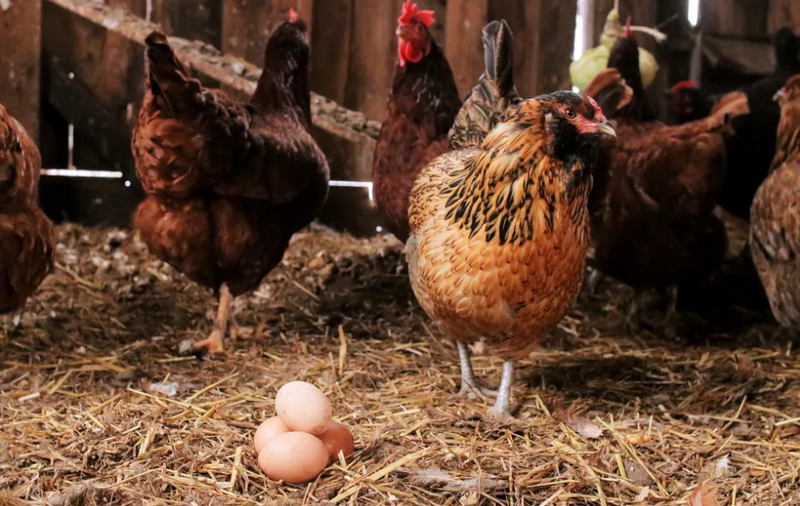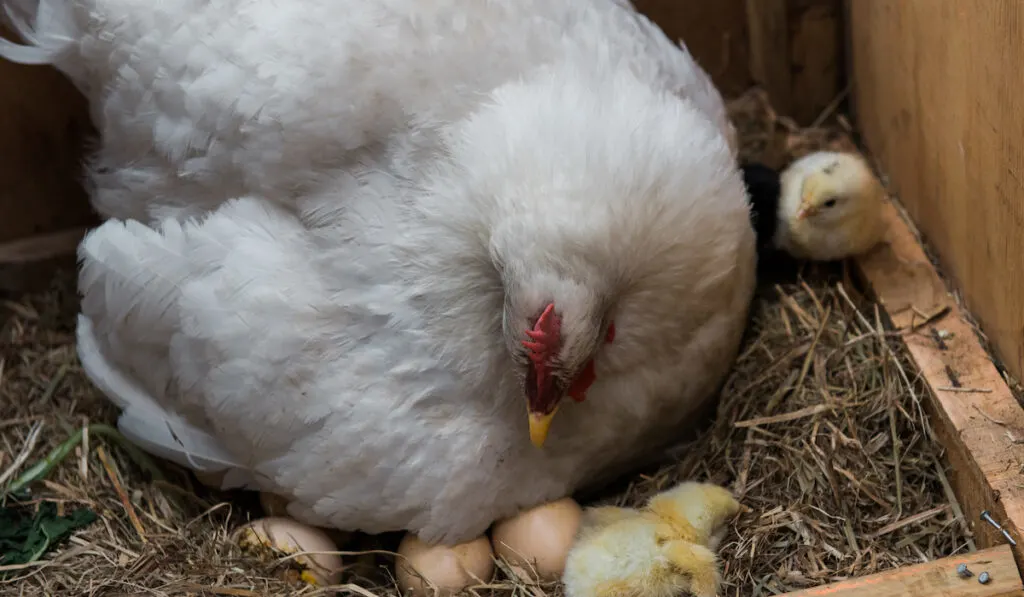Do Hens Produce Eggs Without A Rooster? A Comprehensive Guide
Alright folks, let’s dive right into it. Do hens produce eggs without a rooster? This is one of those questions that gets thrown around in backyard chicken groups, farming circles, and even casual dinner conversations. And guess what? The answer might surprise you. Whether you’re a seasoned poultry enthusiast or just curious about how chickens work, this guide will break it down for you in a way that’s easy to understand but still packed with useful info.
First things first, hens and their egg-laying abilities are fascinating creatures of nature. They’ve been doing their thing long before humans domesticated them, and they don’t need much help from roosters to get the job done. But here’s the kicker—there’s a big difference between eggs for eating and eggs for hatching. Stick around, and we’ll explain everything.
Now, if you’re reading this, chances are you’re either planning to start your own backyard flock, already have chickens, or are just curious about how the whole egg-laying process works. Either way, you’re in the right place. So buckle up because we’re about to take you on a journey through the world of chickens, eggs, and everything in between.
Understanding the Basics: What You Need to Know
How Do Hens Lay Eggs?
Alright, let’s start with the basics. Hens are basically nature’s egg factories. Every 25 to 26 hours, a hen can produce an egg, and this process happens regardless of whether there’s a rooster around or not. It’s all about hormones and biology. The ovary releases a yolk, which travels down the oviduct, where it gets wrapped in albumen (the egg white) and eventually forms a shell. Boom! You’ve got yourself an egg.
But here’s the thing: these eggs are unfertilized unless a rooster has been involved. Unfertilized eggs are perfectly safe to eat and are actually what most people consume daily. So, if you’re wondering whether you need a rooster to get eggs, the answer is nope. Hens can lay eggs just fine on their own.
Why Do People Think Roosters Are Necessary?
There’s a common misconception that roosters are needed for hens to lay eggs. This myth probably stems from the fact that roosters are necessary if you want to hatch chicks. Without a rooster, the eggs won’t be fertilized, meaning they can’t develop into baby chicks. But when it comes to eating eggs, a rooster isn’t required at all.
Think of it this way: when you buy eggs at the grocery store, they’re almost always unfertilized. Commercial egg farms rarely keep roosters because they’re not needed for egg production. So, if you’re looking to enjoy fresh eggs from your backyard flock, you don’t need to worry about adding a rooster to the mix.
Do Hens Lay Eggs Without a Rooster? Let’s Get Scientific
The Biology Behind Egg Production
Let’s get a little nerdy for a moment. A hen’s reproductive system is pretty amazing. Inside her body, she has two ovaries, but only one is fully functional. This ovary releases yolks, which travel through the oviduct and eventually become eggs. The process is driven by hormones, specifically estrogen and progesterone, which regulate the egg-laying cycle.
Now, here’s where the rooster comes in—or doesn’t, in this case. If a rooster mates with a hen, his sperm can fertilize the yolk before it becomes an egg. This fertilized egg has the potential to develop into a chick if incubated properly. However, if no rooster is present, the yolk remains unfertilized, and the egg is simply laid as food for humans or other animals.
How Often Do Hens Lay Eggs?
The frequency of egg-laying depends on several factors, including the hen’s age, breed, diet, and environment. On average, a healthy hen can lay about 5 to 7 eggs per week. Some high-producing breeds, like the White Leghorn, can lay up to 300 eggs per year. However, as hens age, their egg production naturally decreases.
It’s also worth noting that egg-laying can be affected by external factors like stress, lighting, and temperature. For example, hens tend to lay fewer eggs during the winter months when daylight hours are shorter. Providing supplemental lighting in the coop can help maintain consistent egg production year-round.
Do Hens Produce Eggs Without a Rooster? A Practical Perspective
Advantages of Keeping Hens Without a Rooster
So, why would someone choose to keep hens without a rooster? Well, there are plenty of good reasons. First and foremost, hens are quieter and less aggressive than roosters. Roosters can be noisy, especially when they crow at all hours of the day (and night). They can also be territorial and aggressive toward humans and other animals.
Additionally, keeping hens without a rooster simplifies things. You don’t have to worry about managing breeding or dealing with the potential for too many chicks. Plus, many urban areas have regulations that prohibit keeping roosters due to noise concerns. So, if you live in a city or suburb, hens might be your only option.
Disadvantages of Not Having a Rooster
Of course, there are some downsides to not having a rooster. If you’re interested in hatching chicks, you’ll need a rooster to fertilize the eggs. Additionally, roosters can provide protection for the flock by alerting hens to potential dangers. However, many backyard chicken keepers find that these disadvantages are outweighed by the benefits of a rooster-free flock.
Ultimately, the decision to keep a rooster or not depends on your goals and circumstances. If you’re primarily interested in egg production, you can definitely do without a rooster. But if you’re looking to expand your flock naturally, a rooster might be a good investment.
Common Myths About Hens and Roosters
Myth #1: Hens Can’t Lay Eggs Without a Rooster
As we’ve already discussed, this is simply not true. Hens are perfectly capable of laying eggs without a rooster. In fact, most of the eggs you eat are unfertilized, meaning they were laid by hens who never encountered a rooster.
Myth #2: All Eggs Will Hatch Without a Rooster
Another common misconception is that all eggs will eventually hatch if left alone. This is also false. For an egg to hatch, it must be fertilized by a rooster. Without fertilization, the egg remains just that—an egg. So, if you’re worried about accidentally hatching chicks, rest assured that it won’t happen unless a rooster is involved.
How to Maximize Egg Production Without a Rooster
Choosing the Right Breed
Not all chicken breeds are created equal when it comes to egg production. If your goal is to maximize egg output, you’ll want to choose a high-producing breed like the White Leghorn, Rhode Island Red, or Australorp. These breeds are known for their consistent egg-laying abilities and can produce hundreds of eggs per year.
On the other hand, if you’re more interested in dual-purpose chickens (those that are good for both eggs and meat), you might consider breeds like the Plymouth Rock or Sussex. These breeds lay fewer eggs but offer a more balanced approach to chicken keeping.
Providing the Right Diet
A hen’s diet plays a crucial role in her egg production. To ensure your hens are laying as many eggs as possible, make sure they’re getting a balanced diet that includes plenty of protein, calcium, and essential nutrients. Layer feed is specifically formulated to meet the dietary needs of egg-laying hens and should be the main component of their diet.
In addition to commercial feed, you can supplement your hens’ diet with kitchen scraps, fresh vegetables, and fruits. Just be sure to avoid feeding them anything that’s toxic to chickens, such as chocolate, avocado, or uncooked beans.
Understanding Egg Quality Without a Rooster
What Makes an Egg High-Quality?
When it comes to egg quality, there are several factors to consider, including size, shape, color, and nutritional content. Unfertilized eggs are just as nutritious as fertilized ones and often have a longer shelf life because they don’t contain developing embryos. To ensure your eggs are of the highest quality, focus on providing your hens with a healthy diet, clean living conditions, and proper care.
How to Store Eggs Properly
Proper storage is key to maintaining egg quality. If you plan to eat your eggs soon after they’re laid, you can store them at room temperature for a few days. However, for longer storage, it’s best to refrigerate them. Eggs should be stored with the pointed end facing down to help keep the yolk centered and prevent spoilage.
It’s also a good idea to wash your eggs before storing them. Use warm water and a mild soap to remove any dirt or debris. Avoid scrubbing too hard, as this can damage the eggshell and reduce its protective barrier.
Do Hens Produce Eggs Without a Rooster? Final Thoughts
Recap of Key Points
Let’s recap what we’ve learned. Hens can and do produce eggs without a rooster. These eggs are unfertilized and perfectly safe to eat. Roosters are only necessary if you want to hatch chicks. By choosing the right breed, providing a balanced diet, and maintaining proper care, you can maximize egg production in your backyard flock.
Remember, keeping hens without a rooster has its advantages, including reduced noise and aggression. However, if you’re interested in hatching chicks, a rooster might be a good addition to your flock. Ultimately, the decision is yours, and it depends on your goals and circumstances.
Call to Action
Now that you know the ins and outs of egg production without a rooster, it’s time to take action. Whether you’re planning to start your own flock or just want to learn more about chickens, there’s always something new to discover. Share this article with your friends, leave a comment below, or check out some of our other poultry-related content. Happy chicken keeping!
Table of Contents
- Understanding the Basics: What You Need to Know
- Do Hens Lay Eggs Without a Rooster? Let’s Get Scientific
- Do Hens Produce Eggs Without a Rooster? A Practical Perspective
- Common Myths About Hens and Roosters
- How to Maximize Egg Production Without a Rooster
- Understanding Egg Quality Without a Rooster
- Do Hens Produce Eggs Without a Rooster? Final Thoughts
Discovering The Magic Of The Paris Eiffel Tower: A Complete Guide
How To Easily Reach Atampt Customer Support: Your Complete Guide To The Atampt Contact Phone Number
Who Acted As Paige In Young Sheldon: A Comprehensive Look At The Actress Behind The Character

Do Chickens Lay Eggs Without a Rooster? Chicken Breed Guide

Can Hens Lay Eggs Without A Rooster? The Hen's Loft

How Chickens Lay Eggs Without a Rooster Farmhouse Guide